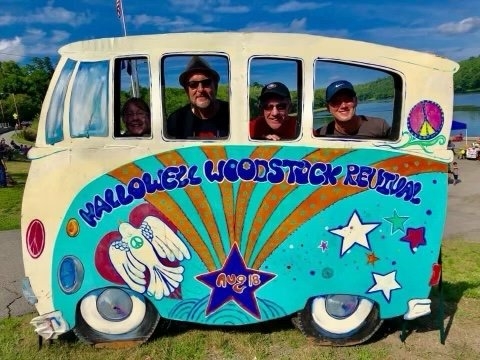When the world stood in awe last week to gaze at the images released from the James Webb Space Telescope, the images achieved a challenging feat: they made astronomy accessible to the general public. The “Black Hole Symphony” performance at the Science Museum this summer does the same, bringing the science of the universe to everyday listeners through music.
“It takes the audience on this journey right into the heart of the black hole galaxy,” composer and conductor David Ibbett said on Boston Public Radio on Friday.
The show, which can only be performed in planetariums like the Science Museum, combines 360-degree visuals with a galaxy-inspired chamber orchestra piece. As Ibbett explained, cellist Johnny Mok plays gravitational wave performances, flautist and piccolo player Jessica Smith plays X-ray and gamma ray performances, and singer Agnes Coakley Cox serves as the “voice of the universe,” alongside guitarist Matt Russo and violinist Ryan Shannon.
Ibbett grew up in a house of scientists, but trained as a classical musician. The symphony, three years in the making, grew out of conversations between him and scientists at the Harvard Smithsonian Center for Astrophysics. “We found ways that you can use your ears to really experience science in a way that you can’t unless you have a lot of training to know how to read graphs and data,” he said.
The symphony has sold out all of its initial dates, but recently added another performance on August 25. After the summer shows, they plan to tour various planetariums and eventually return to Boston.
James Monroe, senior producer of adult programming and theatrical experiences, said he’s excited to bring accessible science to a wider range of people — especially in light of the photos just released by NASA’s new telescope.
“It makes us cool,” Monroe said of the recent astronomical discovery. “I think that’s what’s really exciting about these kinds of breakthroughs and groundbreaking research, because the general public realizes, ‘Oh my God, science is all around us, it’s cool and interesting,’ so it’s always a win for us when things like that happen.”



